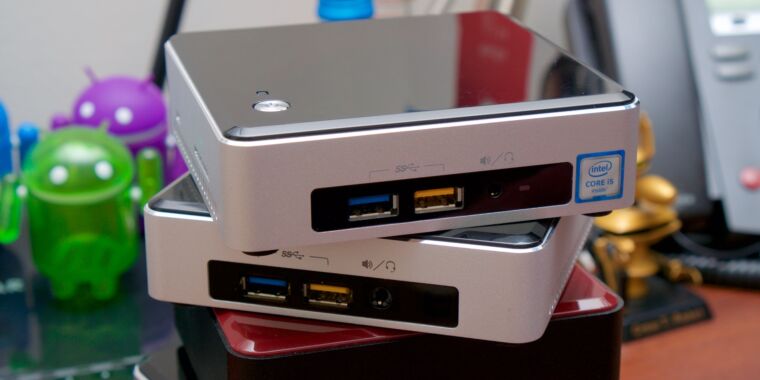Intel axed the NUC at v12

 arstechnica.com
arstechnica.com
What are you thoughts? In 2012 I bought a Gen1 NUC IvyBridge Mobile board and put it in a Akasa case for the drive bay.
After that a hardened NUC5 from digital signage. Then at last NUC7. All running FreeBSD.
I liked no Wall Wart. Raw power cord. Good storage options like M.2 and NVMe for edge storage devices..
Crappy BIOS.
Seems like they mimicked / hijacked Aopen DE box popular for media players of the day.
It is a tough market. Android boxes are now very cheap.
I did like the Gaming NUC with glow skull. That was a cool design.
What do you think of NUC's. Does everybody have one?

No more NUC: Intel’s weirdly named mini PCs seem to be going away
Intel has exited several side businesses as it tries to stop losing money.
What are you thoughts? In 2012 I bought a Gen1 NUC IvyBridge Mobile board and put it in a Akasa case for the drive bay.
After that a hardened NUC5 from digital signage. Then at last NUC7. All running FreeBSD.
I liked no Wall Wart. Raw power cord. Good storage options like M.2 and NVMe for edge storage devices..
Crappy BIOS.
Seems like they mimicked / hijacked Aopen DE box popular for media players of the day.
It is a tough market. Android boxes are now very cheap.
I did like the Gaming NUC with glow skull. That was a cool design.
What do you think of NUC's. Does everybody have one?


